Mississippi Cannabis News
Discovering the Healing Power of Cannabis for Pets & People » Emily Kyle, MS, RDN
Published
1 year agoon

Naturopath, herbalist, and cannabis advocate Carmen Bubner has a personal story that is sure to pique your curiosity. Get comfortable, open your mind, and join us on this fascinating journey into the world of natural remedies, where we explore the surprising benefits of cannabis and its potential to improve our well-being and our furry companions.
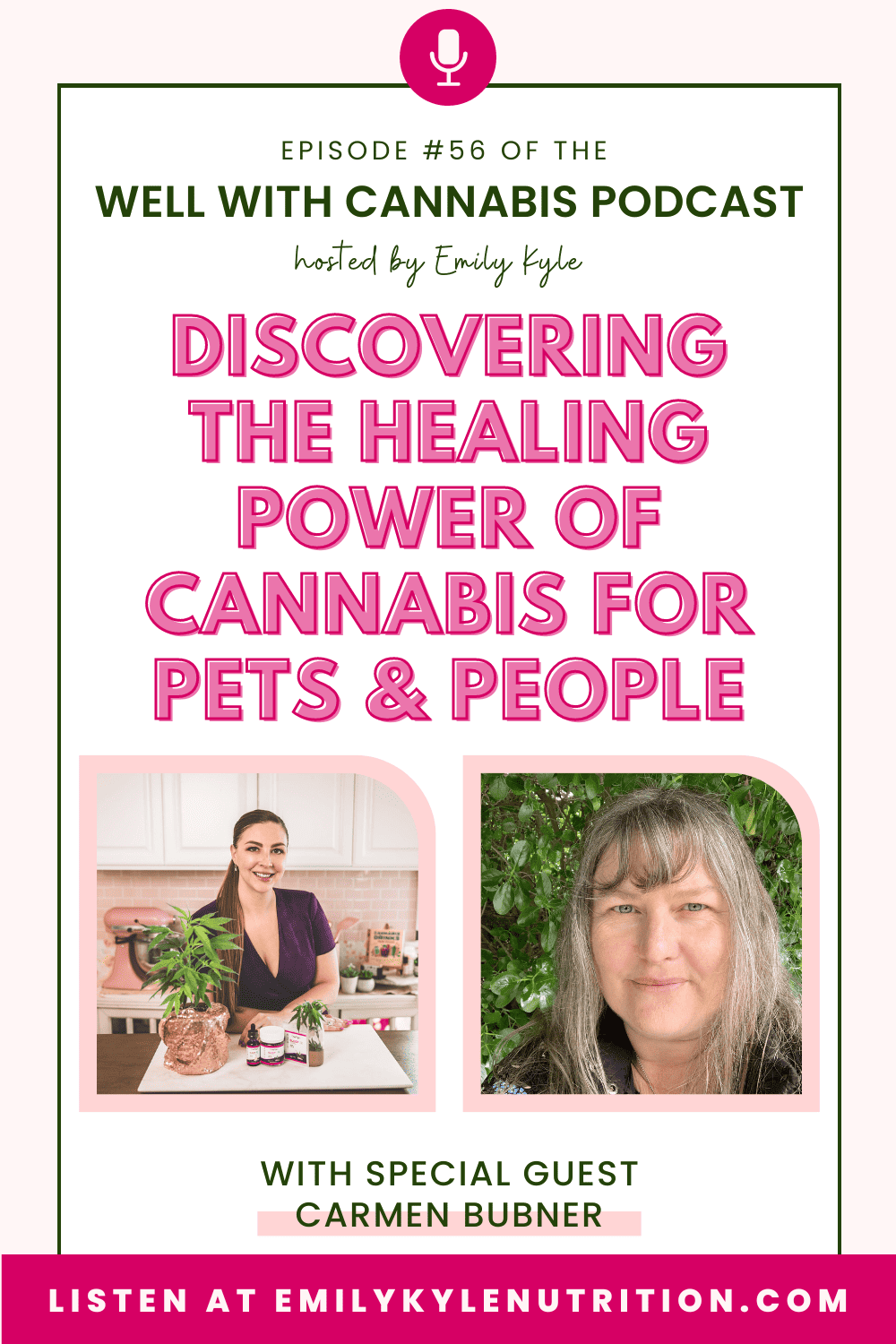
Features
- Release Date: Monday, October 9, 2023
- Episode Number: Season 1, Episode 56
- Special Guest: Carmen Bubner, founder of Plant Wisdom
Listen To The Episode
Click the play button above to listen to the episode.
Listen to all podcast episodes →
Why You Will Love This Episode
This week’s guest is the warm and wonderful Carmen Bubner, a naturopath and herbalist with a fascinating story to share about her journey with cannabis.
Her introduction to cannabis was unexpected when her beloved canine companion suffered from an antibiotic-resistant infection. When conventional remedies failed, cannabis was able to clear it up within months.
Inspired by this experience, Carmen decided to deepen her understanding of cannabis. She studied more about growing cannabis and its medical applications.
Now, not only does she use cannabis for pain management and better sleep, but she also incorporates it into her 5-element plant spirit healing work.
In this episode, Carmen opens up about her experiences, sharing her insights into the benefits of cannabis, both medically and spiritually.
Her story is a testament to the power of natural remedies and the potential they hold for improving our well-being.
Full Transcript
Carmen: So, small doses, very similar to humans. Start off with a very small dose and see what happens. I find with animals they resonate and they take on a lot quicker in some aspects than humans do.
Announcer: Welcome to the Well With Cannabis Podcast, a show dedicated to telling the life-changing stories of those who live well with cannabis all while teaching you how to do the same. Meet your host, Emily Kyle, a registered dietitian nutritionist turned certified holistic cannabis practitioner. Emily changed her life for the better with the help of the cannabis plant, and now she’s committed to helping others do the same.
Tune in each week to hear heartwarming stories and gain the knowledge you need to feel connected, inspired, and supported on your own cannabis journey. Whether you’re a new cannabis consumer or a lifetime lover, you’ll benefit from these uplifting tales of real-life journeys that will show you how you, too, can live your best life well with cannabis.
Disclaimer: Hi there. Before we jump into today’s episode, I wanted to share a note on potentially sensitive content. The episodes on the Well With Cannabis Podcast are created for adult audiences only. We will, at times, cover sensitive topics, including but not limited to suicide, abuse, mental illness, sex, drugs, alcohol, psychedelics, and the obvious use of plant medicine. Explicit language may be used occasionally. Please refrain from watching or listening to the show if you’re likely to be offended or adversely impacted by any of these topics.
The information on this show is for informational and educational purposes only. It does not constitute medical advice. If any of the content on this podcast has brought up anything for you, please reach out or speak to a professional or someone you trust.
Carmen: And see what we can find. So we decided that’s the last resort. We’ll just do that. And. She had a multitude of sinus cavities, which never actually went anywhere. They all ended and the bacteria that she had, they said, was very normal. It was like a staff infection. About a week or so after the operation, it came back again.
Carmen: So we thought that was a bit of a waste, but at least we knew it wasn’t fully internal. All the veterinarian could offer was antibiotics, which I didn’t want to do. A girlfriend of mine asked if we had tried cannabis. I told her that I hadn’t and she offered to get something to try. It came in a little jar and I didn’t even know how they made it or what it was. We put it into her food and within two months it started to clear up. It was gone within five months. That was great.
Carmen: That started my journey of looking into the medicinal aspects of this plant and what it was actually doing. When we took her off of it, it returned in three months. So we put her back on it again for about nine months before we took her off again. Now that she’s 13 years old, she takes it every day because she’s got a bit of arthritis and some other things. I find that she’s happier, healthier, and better on it, as well. She has a few drops in her food every single day. I was totally amazed.
Carmen: I was honest with the vets that what they were doing hadn’t worked and that this is what has worked. They were quite happy that I had used it. They’ve been seeing a lot of antibiotic resistant infections, especially in animals, and she didn’t have anything that was odd or different; it just wasn’t going away. Now we keep an eye on her, but she hasn’t had anything for a good couple of years now and it hasn’t come back.
Emily: I’m so happy to hear such a success story and that you still have her and she’s living her doggy life later on in life. Now I’m interested, you said you work as a naturopath and an herbalist and you said that this opened your mind up to the possibility of cannabis. Explain that a little bit and how that worked after.
Carmen: Obviously as a teenager, people do experiment with cannabis and things like that. I did and I would say that I had a bit of a strange experience with it when I was younger. I never touched it again afterward and never really thought about the plant much. People would talk about it and call it every different name under the sun, but you can learn more about it and open your mind to the medicinal aspects. I’ve done a lot of studies, courses, and book research. I also work with the plant spirit, so I’ve set up a little sanctuary where I live, working with plants and the spirit of plants. I think it’s opened up a whole different respect and understanding for the plant. Unfortunately, Australia is really far behind in what the US is doing.
Emily: May I ask, for my US listeners, what does it look like in Australia? Is it illegal? Is it decriminalized? Give us a little bit of a background.
Carmen: So I actually did a little bit of research last night looking at the whole aspect. So in my state where I am, it’s illegal. You’re not allowed to grow, you’re not allowed to have a possession. They do roadside testing and things like that, similar to what they do for alcohol.
Carmen: The interesting thing is that the general population is not allowed to have it, but some doctors can dispense it now. There’s actually one clinic that I do know of where you can get a prescription for it, but the legalities are so confusing. If you get tested, you can still get fined or other things, even if you have a prescription. It’s all very confusing.
Carmen: The only area that it is allowed is basically the Capital Territory. You’re allowed to grow two plants per person and you’re allowed to have a certain amount of grams. You’re still not allowed to consume it in public at all. And that’s the state where all the politicians are.
Emily: The same is in the United States here. Do you see progress being made? Are you hopeful for the future of cannabis?
Carmen: I am. And in some aspects, there is progress that’s being made. And unfortunately over here, I feel that it’s very much taken over by the pharmaceutical industry. They’re allowed to do what they do and make, but for me, especially being a naturopath and herbalist and having a passion for plants, it’s a plant that should belong to all of us, not just the pharmaceutical companies. When I look at what it has done for other people, as well, it’s improving their health and well-being. It’s amazing and so easily accessible.
Emily: I was going to ask, can you get it? Do a lot of people use it?
Carmen: It is prevalent. We have what we call a Therapeutic Goods Association, we call the TGA, and it doesn’t look like they’ve approved it under their banner because there hasn’t been enough study or evidence. There is a lot of information out there about it now. I think that people do find the dosage and preparations both difficult aspects to work with.
Emily: Do you have any advice for someone listening to you from Australia? What would you recommend if they’re feeling like they want to try cannabis but don’t know where to start?
Carmen: Talk to someone that they feel knows, or has that information, or can help them. Many people will say to buy from a reputable place, but there are people out there that are making good medicine at home, too. Or learn as much as you can and do it yourself. That way, you know what you’re using and what you’re consuming.
Emily: That’s perfect advice. I just want to ask, have you had the opportunity to grow one yet?
Carmen: Maybe.
Emily: Isn’t it the most exciting experience to watch it grow?
Carmen: I think that’s the thing with any medicine, like herbal medicine, and that sort of aspect. That’s one way to really connect yourself with the plant is to grow, harvest, make medicine, on all levels, mind, body, spirit.
Emily: I need to tap into your herbalist wisdom and I need to ask you about your five element plant spirit healing work. Can you tell us more about that? I’m super interested.
Carmen: So basically I form relationships with the plants. I use a lot of shamanic journeying, growing with the plants, spending time with the plants, so that they pretty much become my beloveds. With five element plant spirit healing, I use a five element acupressure that I’ve learned here. Basically, the plants become within you so that you can actually work with them and be able to transfer that energy to an acupressure point to help unlock and release something.
Carmen: The five element acupressure works very much on the spiritual aspect, as well as the physical and emotional being. It’s a beautiful process. You don’t have to be with the plant for plant spirit healing to work. You can work with the energy and spirit of that plant, too.
Carmen: I’ve done a combination of things that I’ve learned. I actually traveled to the US a few years ago because my mentor, Pam Montgomery, lives in Vermont. She came to Australia a few years back and quite a few of us went through her plant spirit healing training and plant spirit communication with her.
Emily: The more I learn about cannabis, the more I become interested in other plants and herbalism is something that I am so interested in. Can you talk a little bit about how you incorporate that with cannabis in your everyday life to support your health and wellness?
Carmen: Cannabis can help with pain, depression, and people who can’t seem to move forward. It can also really help if you’re suffering a lot of anxiety, as well. I find a lot of people that turn to using cannabis generally are in the last time frame of their earthly experience. Many have cancer and are in significant pain or who just want to try it because they have cancer.
Carmen: On a spiritual level, cannabis is a very big power plant. It’s got a lot of guts and it deserves a lot of respect. It’s almost like it creates this container for you to feel safe in while you experience things.
Emily: The way you said that creates a container for you to feel safe. I’ve talked to so many people about how cannabis helps them feel like it brings them back to themselves and brings them confidence, but I’ve never heard anyone describe it that way. I really like that. It’s hard to sum up into words what cannabis can do, but I like that.
Emily: I really like how you described your journey into using cannabis, as well. I just find it so amazing that so many people can come to it for so many different reasons, whether it’s pain, anxiety, depression, and it can still help on so many different levels. I find a lot of people once they get what they want, pain relief, anxiety relief, depression relief, they find that cannabis brings them other benefits that they didn’t even know that they could experience, whether it’s an emotional uplift or a spiritual journey. I feel like this plant is so much more than we give it credit for.
Carmen: Definitely. You can use it externally, as well. You can use it on an area that’s painful and in need of healing, like an aching knee or sore back.
Emily: We talked a lot about people, but I said, this was the only episode we’ve talked about pets before.
Carmen: I guess I should get back on the pet topic.
Emily: It works perfectly for all of us, but for whoever’s listening and they’re thinking about using cannabis for their pet, what advice do you give them on how they can get started?
Carmen: I dispense a few drops of it in my dog’s food. Some people will give it orally, as well. My dog really likes tincture, so I use more of that than the oil. Start off small. Animals don’t need as much as what we like; they don’t have the emotional baggage that we do.
Emily: So true. I never thought of it that way.
Carmen: Just as with humans, start off with a very small dose and see what happens. I find that animals resonate and take on a lot quicker than humans do. If you give them too much, it’ll wear off. You’re not going to shut down their respiratory system because there’s really no such thing as an overdose.
Carmen: There was a pamphlet I was looking at last night while researching some of the laws that were about overdosing with cannabis. You can overdose with a pharmaceutical drug and it can take your life away, but cannabis won’t. But pets can have problems with certain preparations. For instance, you don’t want to give a cat an alcoholic tincture because they have a lot of problems with alcohol. You can burn off the alcohol by adding some really hot water to it, but you could also use an oil instead.
Carmen: I think that the dosage can be individual. My dog might be on four drops and another dog might have one drop and be bombed out for the day. Humans are the same. We can have hemp oil here, which people don’t realize is cannabis.
Emily: Thank you so much for sharing your wisdom about the pet and that experience. I’m so glad that your baby’s doing so well now.
Carmen: Yes. And as I said, she’s 13 now, so I don’t give her any for her infection aspect, because that left, but I just find because she’s always been a bull at a gate her whole life, she’s got a lot of injuries. So she has it more so for pain relief or discomfort and general wellbeing.
Emily: Have you connected with other pet owners who use cannabis for their pets?
Carmen: No, I do know I do know of other people that use it for their animals. Some people know that they’d like to, but they’re a bit scared to use it. For some people, the fear of just having it sitting somewhere is too confronting for them because there’s that fear that it’s a bad plant and that sort of thing. But, as I said, there are places that will dispense it now, but you’re looking at a lot of money for medicine.
Emily: What advice do you have for those who are scared? And I’m sure you were scared when you first started as well. What advice do you have to anyone who might just need to get over that hump?
Carmen: Research a little bit more about the plant. Dig deep and be a bit brave. It’s a natural being of the earth, and I do harp on it a bit, but it’s our medicine so it needs to stay our medicine. Experiment and talk with someone who might know about it. There are many doctors over here that don’t want to prescribe it because it’s a process, but I think it’s getting easier for people within the medical system. They’re just making it harder for people that want to make their own.
Emily: How do you think most vets are? Do you think they’re receptive? You said you had a good experience.
Carmen: Yeah. I think that they get to the stage where they tell people to try it. I think my vet made a note about it because they are seeing so many animals with antibiotic-resistant infections.
Emily: If cannabis can be a natural solution, I feel like we have to tell more people about it. That’s why I’m so glad we’re doing this podcast interview because people love their pets just as much as they love their children. And if they could find a solution for them, people would do anything for their animal.
Carmen: If someone is a bit scared, they could maybe start off with hemp oil. You’re not going to get in trouble for having htat in your fridge.
So yeah, so maybe someone that’s a bit scared, maybe they just start off with hemp oil, you’re not going to get in trouble for having that in your fridge.
Emily: You can get that right at the grocery store down there?
Carmen: I’m not sure actually. I haven’t seen it in the supermarket, but you can get it in a pharmacy. You can also get it online and there is a big company that grows their own in Tasmania. We can also get hemp seeds, but they’re all cracked and treated so that you can’t sprout them.
Emily: Oh my gosh. I really hope that Australia gets on the same path as the States. It sounds like you’re moving in the right direction. I just hope they move a little bit faster because it would be nice. I find it special to talk to someone who’s literally halfway across the world, but we have this bond over this plant that we all should have the right to use and that our eyes have been opened to the benefits of it. It doesn’t matter if I’m in the States and you’re in Australia. This plant is a universal plant and it can help humans and animals. I’m so glad that you came here and shared that with us today. Thank you. I ask my guests the same four questions. Are you ready for them?
Carmen: Yes. I’m ready.
Emily: Awesome. Perfect. The first question, what are you most proud of in your life?
Carmen: Helping my animals. And I do actually have one other little experience that I’d like to share that just popped into my head. I live on a rural property and we have a lot of animals. Every year, I get pet lambs. I once had one lamb that was quite sick and I had put her on a mat next to my bed so that I could keep an eye on her. Unfortunately, she was very sick and her life was ending. I promised her that she wouldn’t be in any pain for her last night and I dosed her with cannabis. She died that night, but when I woke up in the morning, she looked like she had just gone to sleep. She had been struggling for breath and I had given her cannabis to keep her relaxed. I’m proud of being able to help those that can’t help themselves.
Emily: I’m so sorry for the loss of that little lamb. It must be so hard, but if you can provide comfort in that last moment, I’m sure that that means more than anything.
Carmen: Exactly. So seeing her transition from struggling for breath and being anxious to being calm and just going to sleep was beautiful.
Emily: Everybody deserves that, humans and animals. Everyone deserves to be comfortable during your last moments on earth.
Emily: Next question. What do you think your life would look like without cannabis?
Carmen: I probably wouldn’t have Winnie here because the amount of antibiotics that she had would have really wrecked her gut, which would have made her go downhill or something. And probably I wouldn’t be talking to you.
Emily: I always feel like it’s so magical that we get brought together this way.
Carmen: It’s taken me on a learning journey so that I can help educate others and I can help them so that they don’t feel that the world of cannabis is a big scary world.
Emily: We need more people like you. If you could go back 10, 20, 30 years ago and give yourself a piece of advice, cannabis related or not, what would it be?
Carmen: I spent quite a lot of time being afraid of cannabis. I would tell myself not to be so afraid, to step up and form more of a relationship with the plant. Instead of fearing it, I should look at it as more of a learning curve.
Emily: Last but not least, if you could be remembered for just one thing, in the cannabis space or not, what would it be?
Carmen: Probably for helping people, I would say, and support. I’d like to be remembered for lots of things. I’ve created a beautiful little sanctuary where I live, a safe container for people to experience and feel comfortable in, working with the spirit of plants. I’d like to be remembered for that sanctuary, as well.
Emily: Amazing. Thank you so much for coming here to share your story with me. I love the beauty of the plant. We could go on and on. But again, this is our first pet episode, and I’m really excited that you shared this with us. If other people can help their furry friends too, we talked about the benefits of cannabis for humans, but our furry friends, our favorite companions, if we can provide them the relief too, it’s a win. And I just can’t thank you enough for sharing that with us today.
Carmen: It’s been great.
Emily: Any last words of wisdom for anybody listening, whether they’re in Australia or not?
Carmen: Get out there and learn more about the plants. Many people over here advocate for cannabis. Nature should be medicine and not be wound up in red tape. We’ll just keep going and taking it one day at a time.
Emily: Thank you for taking the time to do this with me today from halfway across the world. I am sending you all my cannabis love. Thank you so much.
Carmen: Thank you.
Announcer: Congratulations, you’ve finished another episode of the Well With Cannabis Podcast and are one step closer to discovering how you, too, can live well with cannabis.
Thank you for listening in today. We hope this episode has been a helpful and informative one. Please visit emilykylenutrition.com for more information on today’s show, show notes, guest information, recipes, and other resources.
If you want more support and encouragement on your cannabis journey, please consider joining the private Well With Cannabis Community. In this group, you can connect with like-minded individuals focused on improving their health and wellness through cannabis.
Join the group today to continue your journey of wellness together!
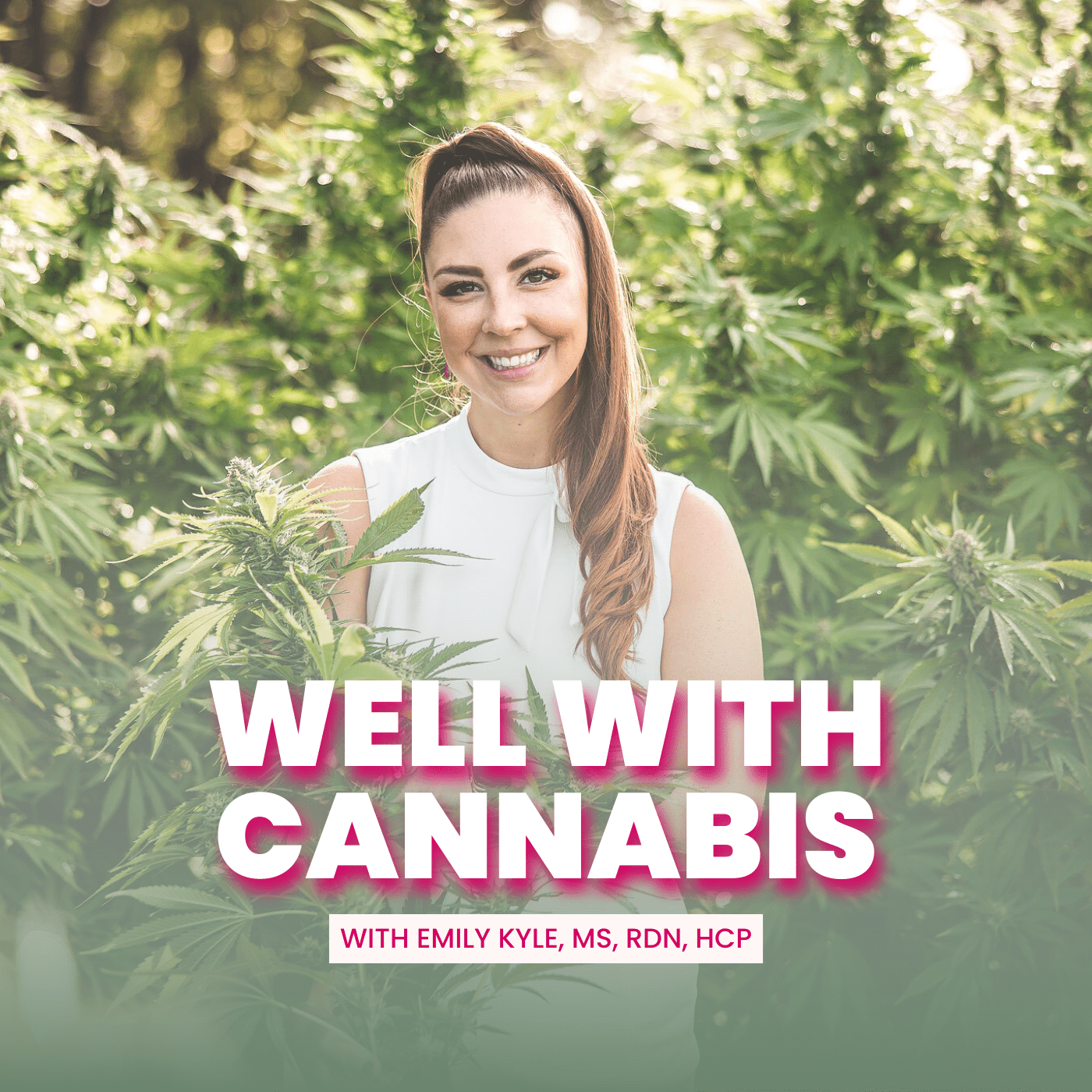




Author: mscannabiz.com
MScannaBIZ for all you Mississippi Cannabis News and Information.
You may like
-


I Worked a Day as a Budtender in Brooklyn: Here’s What I Learned
-


Trump’s ‘Stupid’ Drug War Killings Put Military In Untenable Position, Former GOP Attorney General Of Idaho Says (Op-Ed)
-
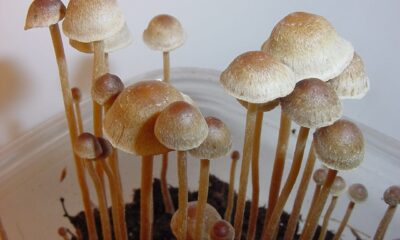

Oregon Officials Seek To Dismiss Psilocybin Access Lawsuit From Homebound Patients
-


South Dakota Medical Marijuana Advocates Alarmed After Lawmakers Give Prohibitionists A Platform
-


What Levi Strauss Can Teach Us About Craft and Cannabis
-
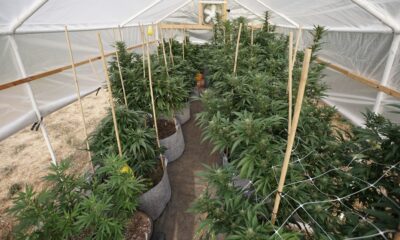

Michigan Lawmakers Consider Bills To Change Legal Marijuana Possession Limits And Alter Industry Disciplinary Rules
Mississippi Cannabis News
Nebraska Republicans are targeting voter-approved medical marijuana, following other GOP-led states | Around Mississippi
Published
3 weeks agoon
October 2, 2025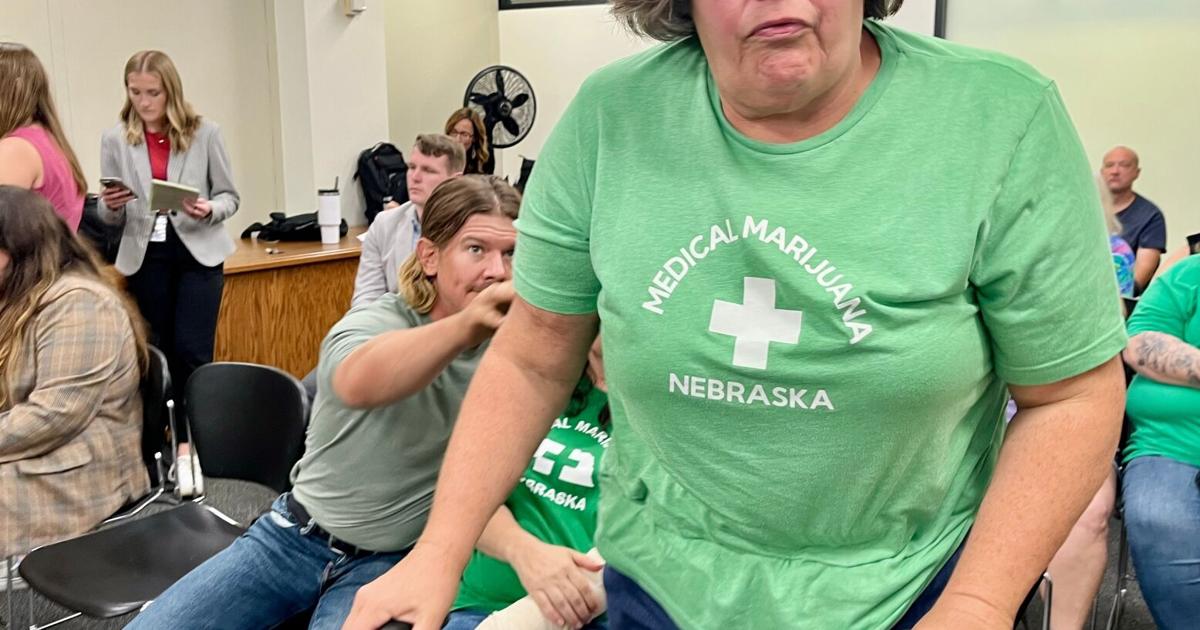

Author: mscannabiz.com
MScannaBIZ for all you Mississippi Cannabis News and Information.
Mississippi Cannabis News
Nebraska Republicans are targeting voter-approved medical marijuana, following other GOP-led states
Published
3 weeks agoon
October 2, 2025
LINCOLN, Neb. — Nebraska officials missed a deadline this week granting licenses to marijuana growers as part of a voter-approved measure that legalized medical marijuana, offering the latest example of pushback in Republican-led states against efforts to legalize the drug.
“How many times do we have to go down this road of fighting for our lives?” Lia Post asked through sobs Tuesday to the newly formed Nebraska Medical Cannabis Commission as it became clear the body would not meet the Wednesday deadline.
Post lives in eastern Nebraska and suffers from a condition that causes chronic pain in her extremities. Marijuana provides relief from the condition and allows her to avoid addictive opiates.
“There’s no begging left in me,” Post cried during the commission meeting, where three members hand-picked by Republican Gov. Jim Pillen said they had to postpone licensing.
Nebraska Republican leaders from the governor to the state’s attorney general and conservative lawmakers are working to weaken or even kill the new law, despite its overwhelming support at the ballot box.
Twenty-four states and Washington, D.C., have legalized recreational marijuana for adults, although some efforts in Florida, North Dakota and South Dakota recently failed at the ballot box. The medical use of marijuana is more accepted and allowed in 40 states and the District of Columbia, including 17 states where voters approved it.
But some Republicans in those states have continued to fight against medical marijuana approved by voters. In South Dakota, a Republican state lawmaker unsuccessfully pushed a bill this year to repeal voter-approved medical marijuana. In Idaho, lawmakers proposed a constitutional amendment that would forbid citizen initiatives to legalize marijuana and instead leave such decisions to the Legislature.
And in Mississippi, the effort to undo a 2020 voter-backed medical marijuana law seems to have gutted that state’s citizen initiative process after the Mississippi Supreme Court voided it, ruling the state’s initiative process is outdated.
Reasons for the pushback appear rooted in the belief that marijuana is a dangerous drug.
Law enforcement has long opposed it as a gateway to other drug use and as a driving-while-intoxicated hazard that can’t be measured in the field by a Breathalyzer. Many cite the federal government’s continued classification of marijuana as a dangerous drug on par with heroin and LSD.
Karen O’Keefe, director of state policies at the Marijuana Policy Project, said polling has shown a majority of Republicans support legalized medical marijuana.
“It’s like a small part of the Republican Party, but some of them are vehemently opposed,” O’Keefe said. “It’s people that bought into reefer madness.”
Unlike marijuana, O’Keefe noted thousands of Americans die annually from prescription opiates and adverse incidents from other drugs.
The medical marijuana law passed by Nebraska voters in November required that licenses be issued by Wednesday. The reason for the delay? Days earlier, Pillen forced the resignation of the two commission members he hadn’t appointed. They had been tasked with checking the qualifications of cultivator applications.
Pillen has insisted he is not opposed to medical marijuana, but has made several moves that critics say are designed to keep people from accessing it. That includes appointing members to the commission who have publicly opposed legalizing marijuana, even for medical use. Pillen also asked the commission to limit the number of marijuana plants to be licensed for medical use to 1,250 — a number the industry argued is too low to accommodate the number of state residents seeking prescription marijuana.
“The purpose in doing so was to ensure that an overabundance of plants would not saturate the market and lead to the creation of unregulated and potentially illegal sales,” Pillen spokesperson Laura Strimple said.
The new Nebraska commission has so far flouted provisions of the voter initiative — including passing emergency rules that ban smoking, vaping or marijuana edibles for medical use, which are specifically allowed under the law voters passed. The commission has also forbidden flavorings to improve the taste of bitter tinctures and pills that are allowed, has drastically limited the number of growers and dispensaries to be licensed, placed burdensome and expensive continuing education requirements on doctors and restricted the amount and strength of medical marijuana that can be prescribed.
State Attorney General Mike Hilgers has turned to the courts to try to invalidate the ballot initiative, approved by more than 70% of voters.
“I would say Nebraska is unique in the level of hostility of trying to overturn the will of the people,” said O’Keefe with the Marijuana Policy Project.
Hilgers lost a court battle last year in which he called into question the validity of thousands of signatures gathered to place the question on the November ballot. A former Republican state lawmaker also sued to void the new law, arguing that it violates federal prohibitions against marijuana. He lost that challenge in district court but has appealed to the state Supreme Court.
Hilgers said his legal fights are solely about protecting the rule of law, accusing the petition process of “unprecedented levels of fraud.” So far, the only success Hilgers has had in court is the misdemeanor conviction of a petition circulator accused of forging signatures on petitions.
“Someone cannot justify this wrongdoing by simply pointing to the favorable results on the ballot; if you could, it would create a dangerous precedent for future petition initiatives,” Hilgers said.
But Hilgers has made no secret of his opposition to even limited legalization of marijuana. In a March editorial, he said “marijuana is easily abused and is not safe to consume even under medical supervision.”
Crista Eggers, who led the medical marijuana ballot initiative, argued a “black market” thrives when marijuana for medical use is too severely restricted.
“If you are one of the 71% that voted in support of medical cannabis, you should be angry, because the system and the regulatory framework that is coming down from this commission is not at all what voters intended,” she said.
Paul Armentano, of the marijuana advocacy organization NORML, said elected officials in states dominated by one political party count on voter partisanship.
“I can only presume that lawmakers are emboldened to take these steps because, generally, they don’t fear there will be repercussions from the voters at the ballot box,” he said.

Author: mscannabiz.com
MScannaBIZ for all you Mississippi Cannabis News and Information.
Mississippi Cannabis News
Ocean Springs Alum Avery Weed wins third career Individual Title with Mississippi State Golf!
Published
3 weeks agoon
October 2, 2025
Mississippi State’s Women’s Golf team wrapped up their third tournament of the fall earlier today in Arkansas at the Blessings Collegiate Invitational. After three days of play, the Ocean Springs native Avery Weed came out on top yet again!
After shooting 14 under par in the Blessings Collegiate Invitational, Avery Weed has won her third individual title with Mississippi State women’s golf! Her score of 14 under also marks the lowest 54- hole score in history of this invitational, with the previous record of 11 under.
This was also the first time that she shot in the 60’s all three rounds in her tournament career, making it a total of 17 rounds under 30 in her three seasons, tying the third most of any Bulldogs golfer during their career.
Weed continues to write her names in the record books and we could not be more proud of her. Congratulations to ocean springs alum and now Mississippi State Junior, Avery Weed!

Author: mscannabiz.com
MScannaBIZ for all you Mississippi Cannabis News and Information.

I Worked a Day as a Budtender in Brooklyn: Here’s What I Learned

Trump’s ‘Stupid’ Drug War Killings Put Military In Untenable Position, Former GOP Attorney General Of Idaho Says (Op-Ed)

Oregon Officials Seek To Dismiss Psilocybin Access Lawsuit From Homebound Patients

South Dakota Medical Marijuana Advocates Alarmed After Lawmakers Give Prohibitionists A Platform

What Levi Strauss Can Teach Us About Craft and Cannabis

Michigan Lawmakers Consider Bills To Change Legal Marijuana Possession Limits And Alter Industry Disciplinary Rules

Bad Stoner Horror: The 10 Worst-Rated 420 Scary Movies

Vee the Traveling Cannabis Writer Unveils First Book in Cannabis Legacy Series – Ganjapreneur

[Video] G Herbo: Snoop Rolled My Blunt and Let Me Hit It, Smoking A Zip a Day, Chicago Munchies (Weird) and What’s Next

Marijuana Companies Ask U.S. Supreme Court To Take Up Case Challenging Constitutionality Of Federal Prohibition

The Odds Of The Feds Making A 2025 Cannabis Change

The Epic High Times Cannabis Cup Journey, From Amsterdam to the Empire State

GOP Senator Pushes To Study—Rather Than Ban—Hemp Products, As State Attorneys General Call For THC Prohibition

Happy International Champagne Day – The Fresh Toast

Maryland Police Want To Watch You Smoke Weed: Free Munchies and Ride Home Included

More Americans Now Use Marijuana Than Smoke Cigarettes, New Study Shows

Unexpected Pleasures of Weed: The Strain That Turned My Husband Into a Clean Freak

Texas Officials Adopt Rules To Expand Number Of Medical Marijuana Dispensaries In the State

Cannabis Ventures, Start-Up Best Practices, and Ways to Compete

Older Adults Increasingly Identify as Cannabis Consumers

Kentucky Governor Touts Surge In Medical Marijuana Patient And Business Approvals As State Prepares For Program Launch

SCOTUS cannabis & guns case gets delay request (Newsletter: October 24, 2025)

Ohio House Passes Cannabis, Hemp Bill Resulting From ‘Venn Diagram From Hell’

What To Know About Cannabis And A Brain Aneurysm

Alert: Department of Cannabis Control updates data dashboards with full data for 2023

Connecticut Appoints The US’s First Cannabis Ombudsperson – Yes there is a pun in there and I’m Sure Erin Kirk Is Going To Hear It More Than Once!

5 best CBD creams of 2024 by Leafly

Recreational cannabis on ballot for third time in South Dakota

EU initiative begins bid to open access to psychedelic therapies
New Study Analyzes the Effects of THCV, CBD on Weight Loss

Free delta-9 gummies from Bay Smokes

5 best autoflower seed banks of 2024 by Leafly

Discover New York’s dankest cannabis brands [September 2024]

Press Release: CANNRA Calls for Farm Bill to Clarify Existing State Authority to Regulate Hemp Products

May 2024 Leafly HighLight: Pink Runtz strain

5 best THC drinks of 2024 by Leafly

Local medical cannabis dispensary reacts to MSDH pulling Rapid Analytics License – WLBT

6 best CBD gummies of 2024 by Leafly

Curaleaf Start Process Of Getting Their Claws Into The UK’s National Health System – With Former MP (Resigned Today 30/5/24) As The Front Man

Horn Lake denies cannabis dispensary request to allow sale of drug paraphernalia and Sunday sales | News

5 best delta-9 THC gummies of 2024 by Leafly

The Daily Hit: October 2, 2024

Mississippi city official pleads guilty to selling fake CBD products

Nevada CCB to Accept Applications for Cannabis Establishments in White Pine County – “Only one cultivation and one production license will be awarded in White Pine County”

5 best THCA flower of 2024 by Leafly

Weekly Update: Monday, May 13, 2024 including, New Guide for Renewals & May Board meeting application deadline

6 best hemp pre-rolls of 2024 by Leafly

PRESS RELEASE : Justice Department Submits Proposed Regulation to Reschedule Marijuana
Trending
-

 California Cannabis Updates1 year ago
California Cannabis Updates1 year agoAlert: Department of Cannabis Control updates data dashboards with full data for 2023
-

 Breaking News1 year ago
Breaking News1 year agoConnecticut Appoints The US’s First Cannabis Ombudsperson – Yes there is a pun in there and I’m Sure Erin Kirk Is Going To Hear It More Than Once!
-

 best list1 year ago
best list1 year ago5 best CBD creams of 2024 by Leafly
-

 Business1 year ago
Business1 year agoRecreational cannabis on ballot for third time in South Dakota
-

 Business1 year ago
Business1 year agoEU initiative begins bid to open access to psychedelic therapies
-

 cbd1 year ago
cbd1 year agoNew Study Analyzes the Effects of THCV, CBD on Weight Loss
-

 Bay Smokes1 year ago
Bay Smokes1 year agoFree delta-9 gummies from Bay Smokes
-

 autoflower seeds1 year ago
autoflower seeds1 year ago5 best autoflower seed banks of 2024 by Leafly
